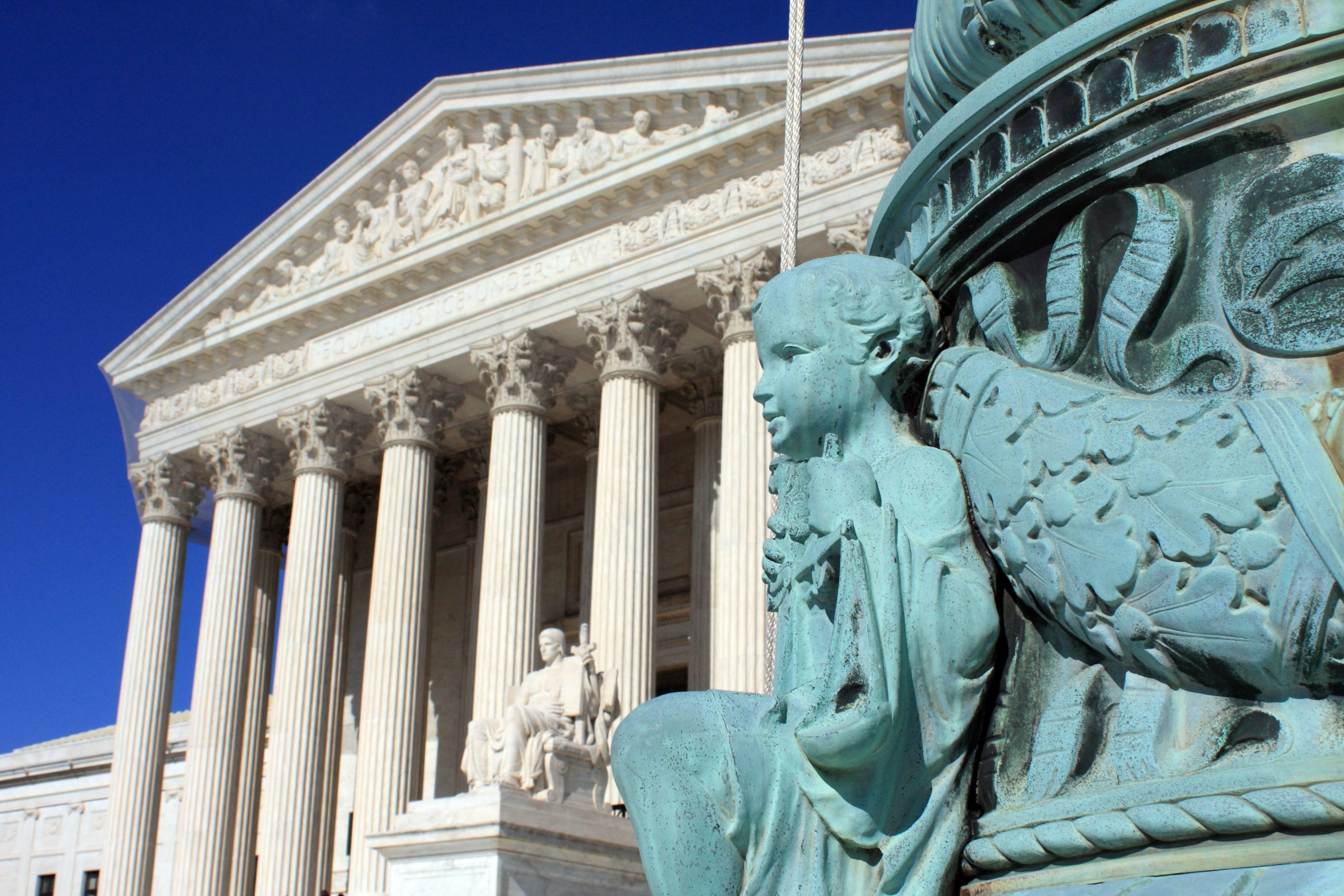EMERGENCY DOCKET
Justices decline to intervene in Louisiana’s Republican-drawn voting map dispute

on Oct 19, 2023 at 4:57 pm

The Supreme Court on Thursday left in place an order by a federal appeals court canceling a hearing intended to draw a new congressional map for Louisiana. The order by the conservative U.S. Court of Appeals for the 5th Circuit was the latest chapter in the ongoing battle over the map – and the third time (although perhaps not the final time) in less than 18 months that the justices have played a role in the dispute.
Justice Ketanji Brown Jackson agreed with the court’s decision not to put the 5th Circuit’s ruling on hold, but she wrote separately (although alone) to stress that the Supreme Court’s decision not to step in was not an endorsement of the appeals courts’ order, and that the litigation should be resolved in time for the 2024 elections.
The legislature adopted the map, over a veto by the state’s Democratic governor, John Bel Edwards, in the wake of the 2020 census. Although nearly one-third of the state’s residents are Black, only one of the six congressional districts on the new map contained a majority of Black voters. Voters and civil rights groups sued Louisiana’s secretary of state, arguing that the map violates Section 2 of the federal voting rights act, which bars racial discrimination in voting. The Republican leaders of the state’s senate and house of representatives joined the lawsuit to defend the plan, as did the state’s attorney general.
In June 2022, the district court blocked Louisiana from using its congressional map and gave the legislature 14 days to create a new map, including a second majority-Black district. An administrative panel of the U.S. Court of Appeals for the 5th Circuit declined to lift the district court’s stay.
On June 28, 2022, a divided Supreme Court put the district court’s order on hold while it considered a similar voting rights case from Alabama. That brief, unsigned order effectively cleared the way for Louisiana to use the map in the 2022 elections.
Shortly after its June 2023 decision in Allen v. Milligan, upholding a lower court’s decision finding that the map drawn by Alabama’s Republican-controlled legislature likely violates the Voting Rights Act, the Supreme Court lifted the stay in the Louisiana case.
On Sept. 28, the U.S. Court of Appeals for the 5th Circuit entered a writ of mandamus – an order directing the district court to cancel a hearing, scheduled for the first week in October, intended to create a new map. The court of appeals explained that the district court should have first given the Louisiana legislature a chance to comply with its ruling before holding a hearing to create a remedial map.
The challengers came back to the Supreme Court on Sept. 30, asking the justices to put the writ of mandamus on hold. They argued that the 5th Circuit’s ruling “reflects a series of egregious mistakes that must be corrected.” The state, they said, had not asked the court of appeals to block the hearing on the ground that it had not had an opportunity to draft a new map. Indeed, they note, the state never asked any court “for any additional time” to allow the legislature to act. Use of mandamus in this case to micromanage the district court’s docket was “flagrantly inappropriate,” the challengers added.
And if the Supreme Court does not intervene, the challengers warned, the 2024 elections could go forward without a new map in place. “Louisianans, particularly Black Louisianans,” they wrote, “will suffer irreparable injury by being forced to vote for a second consecutive election in congressional districts that a federal court has found likely to violate federal law.”
Louisiana Secretary of State Kyle Ardoin told the justices that without a writ of mandamus, the case “would have devolved into procedural chaos, making it impossible to resolve” the challengers’ claims before the 2024 elections. Far from being “flagrantly inappropriate,” he insisted, the 5th Circuit’s decision to intervene put the case back on a normal track. The state had simply wanted the district court to hold a full trial to resolve, once and for all, the challengers’ Section 2 claims – and to do so in light of the Supreme Court’s recent decisions on redistricting and the role of race in university admissions. When the district court declined to do so and rebuffed its motion to cancel the October hearing, Ardoin suggested, the state had no other option but to ask for a writ of mandamus.
In an unsigned order issued on Thursday afternoon, the justices rejected the challengers’ request, leaving the 5th Circuit’s writ in place.
In a three-paragraph solo opinion, Jackson emphasized that “nothing in our decision not to summarily reverse the Fifth Circuit should be taken to endorse the practice of issuing an extraordinary writ of mandamus in these or similar circumstances.”
Moreover, Jackson added, because the Supreme Court has previously indicated that the dispute should be resolved before the 2024 congressional elections, she interpreted the 5th Circuit’s ruling “to require the District Court to delay its remedial hearing only until the Louisiana legislature has had sufficient time to consider alternative maps that comply with the Voting Rights Act.”
This article was originally published at Howe on the Court.


